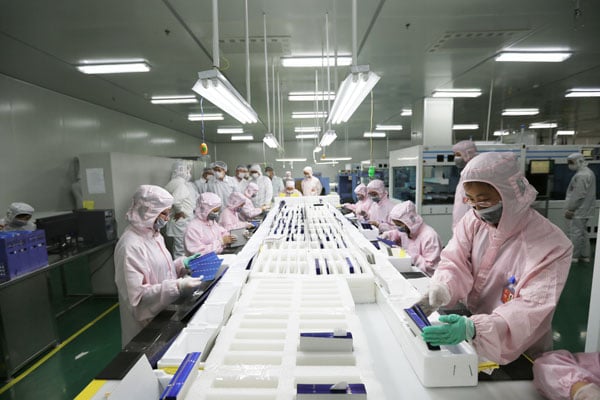
The Chinese government has issued a notice to its PV industry that calls for the optimisation of the sector and further buildout of its infrastructure while warning against hoarding products and the establishment of solar monopolies.
The country’s Ministry of Industry today (24 August) released the policy document that called for an “optimisation of the industrial layout” of China’s PV sector by planning and managing the development of the PV industry while promoting China’s internal solar market.
Unlock unlimited access for 12 whole months of distinctive global analysis
Photovoltaics International is now included.
- Regular insight and analysis of the industry’s biggest developments
- In-depth interviews with the industry’s leading figures
- Unlimited digital access to the PV Tech Power journal catalogue
- Unlimited digital access to the Photovoltaics International journal catalogue
- Access to more than 1,000 technical papers
- Discounts on Solar Media’s portfolio of events, in-person and virtual
It said there was an “urgent need to deepen industry management” following supply and demand imbalances, price fluctuations and supply chain hoarding.
As a result, the Ministry called on Chinese solar stakeholders to “apply a new generation of information technology, build a big supply chain data platform for silicon materials, silicon wafers, batteries, components […] and key supporting materials and equipment”.
While doing this, however, companies are encouraged to “reserve materials such as polysilicon and batteries” but “hoarding is strictly prohibited”. Panic buying and hoarding last year was a key factor in driving up the price of polysilicon and modules as companies scrambled to lock in supply to meet customer demand.
Now, the Chinese government is calling on its solar industry to form long-term “strategic alliances” and cooperate on the production and supply of key silicon materials and products as it conducts “joint research to promote industrial quality improvement, cost reductions and efficiency enhancement.”
Moreover, it said the industry should “adhere to the overall planning of epidemic prevention and control”. China, unlike most of the rest of the world, is pursuing a zero-COVID strategy that has already seen industrial centres shutdown following small outbreaks and the key export hub of Shanghai closed for several weeks in April.
And the call for greater integration and infrastructure development has been made even more pertinent this week as China’s PV industry has been hit by power rationing following extreme heat in some provinces. This has forced some major PV supply to cut their production output in key regions.







